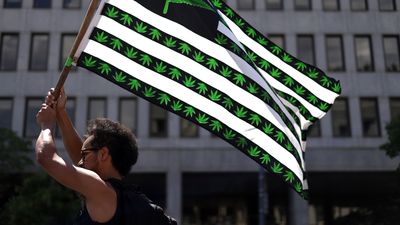The Five States with Cannabis Legalization on The Ballot
Cannabis could soon be legal for recreational use and sale in roughly half of the states.
It may seem like each election year brings with it another grip of states hoping to put meaningful cannabis reform in the hands of voters. But that's probably because it appears to genuinely be the case, with this year's midterms being no exception.
From the rural South to the farthest reaches of the Midwest, state legislators (in many cases) battled opposition from their own election boards to print legalization measures on this year's ballots. Some are longshots by any system of metrics. But others have a legitimate chance of being voted into state law, and deepening the green tide washing across the country. Should they all pass, the number of states with access to legal recreational cannabis would swell to 24 (plus D.C.), bringing full reform to roughly half of the states in the country.
In 2020, we saw a wave of ballot measures expand recreational and medicinal cannabis access to the people of New Jersey, Montana, Arizona, and South Dakota (where one of two cannabis bills passed to establish a medical system). Of the states with reform measures in 2020, only Mississippi failed to budge the needle. But that's a pretty solid hit rate, and this year could see similar results at the booth.
Five states are putting cannabis legalization on the ballot in 2022. All have had their respective medicinal programs in place for years, and although full-on legalization polls well across the board, some have bigger hurdles than others in actually getting it signed into law.
Maryland
In Maryland, where recent polling found a whopping 73% of respondents in support of legalization, Question 4 on this year's ballot would remove the penalty for up to one-and-a-half ounces of flower for adults over the age of 21. The Old Line State has had a thriving medicinal cannabis system for nearly four years now, and seems most likely to pass its measure on election day.
Missouri
While not polling quite as strongly in favor of legalization, Missouri still stands sturdy with nearly 60% of voters in support of reform. The state's Amendment 3 proposition would legalize the possession of up to three ounces of cannabis, and expunge the records of people convicted of certain low-level non-violent crimes. However, new offenses, like smoking in public, will still carry penalties and fines.
North Dakota
Measure 2 in North Dakota would legalize the possession of up to an ounce of flower, and up to three mature plants at home. The measure would also authorize the state to award licenses to 18 businesses for retail operation.
South Dakota
Just below the state border, South Dakota is also bracing for a pivot on prohibition. Under Measure 27, the Mt. Rushmore State would legalize the possession of up to an ounce of cannabis, and up to three plants for home cultivation in areas where there are no retail options.
Arkansas
Finally, there's Arkansas, where polling suggests a pretty even split in support for the state's legalization proposal. Under Issue 4, the state would amend its constitution to legalize the possession, sale, and use of cannabis. Carrying up to an ounce of flower would hold no penalty, but the framing of this particular statewide measure has been met with criticism even from reformists. Were it to pass, Issue 4 would arguably be the strictest market structure in the country, keeping home-growing illegal under the law.
For now, hopes are as high as the stakes, and the statewide profit potential is probably even higher. But frankly, even if these do come to pass, installing a fair, sustainable, and equitable infrastructure for the sale and use of recreational cannabis, will require more patience than most are willing to afford. One needs not look further than New York for the types of snags state legislatures can hit in the setup. Approaching two years since the state officially legalized, it has yet to go live with its (above-ground) recreational program, which has only bolstered quasi-legal grey markets across the state.
The states plotting their point of entry into the recreational market have no doubt taken notes on those who've more recently made the big green leap. What they've actually gleaned from their study, and maybe more importantly what it'll look like in practice, remains pretty unclear. Suppose we'll have to wait for the smoke to settle to find out.
